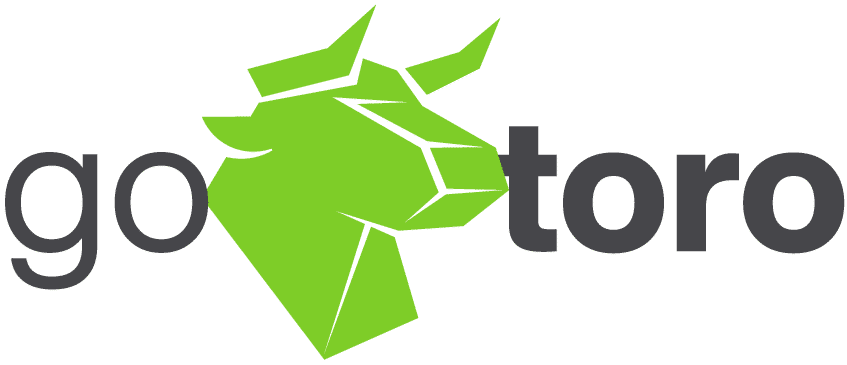Rapid Changes in the Staffing Industry
The staffing industry is undergoing a significant transformation, driven by rapid technological advancements and shifting market dynamics. Traditional staffing strategies that once relied heavily on manual processes and local job fairs are no longer sufficient to meet the demands of today’s fast-paced job market. The need for modernization is paramount as staffing agencies strive to remain relevant and competitive. staffing agency strategies
Main Strategies for Modern Staffing Agencies

To stay ahead in this dynamic landscape, staffing agencies are adopting a range of modern strategies. These include leveraging advanced technologies like AI and machine learning, utilizing programmatic job advertising, and enhancing data analytics capabilities. By embracing these innovative approaches, staffing agencies can optimize their operations, improve candidate matching, and ultimately, achieve better hiring outcomes.
The Evolution of Staffing Techniques: From Traditional Methods to Modern Solutions
Tracing the Journey of Staffing Techniques
Staffing strategies have evolved significantly over the years. In the past, staffing agencies primarily relied on conventional approaches such as manual resume reviews and organizing local job fairs. These methods were labor-intensive and often lacked the precision needed to identify the best candidates.
Key milestones in the evolution of staffing techniques include the advent of digital job boards and online application systems, which brought about significant improvements in the efficiency and reach of recruitment efforts. However, even these advancements are being surpassed by the latest innovations in the field.
Programmatic Job Advertising
One of the most revolutionary advancements in staffing strategies is programmatic job advertising. This technology automates the process of buying, placing, and optimizing job ads, using real-time data and algorithms to target the right candidates with precision.
What is Programmatic Job Advertising?
Programmatic job advertising involves the use of software to purchase digital job ads in real time, similar to how programmatic advertising works in the marketing industry. This method utilizes data analytics and machine learning to ensure that job ads are shown to the most relevant candidates across various digital platforms.
Benefits of Programmatic Job Advertising
- Real-Time Bidding: Programmatic job advertising allows for real-time bidding on job ad placements, ensuring that ads are displayed to candidates actively searching for relevant opportunities.
- Targeting Precision: This approach leverages extensive data to target job ads based on various criteria such as location, skills, and experience. This precision targeting ensures that ads reach the most suitable candidates.
- Cost-Effectiveness: By optimizing ad spend and reducing waste, programmatic job advertising offers a cost-effective solution for staffing agencies. The technology ensures that budgets are allocated efficiently, maximizing the return on investment.
By integrating programmatic job advertising into their staffing strategies, agencies can significantly enhance their recruitment efforts, ensuring that they connect with the right candidates more efficiently and effectively than ever before.
Growth from Database to Cold Outreach
Transition from Database Reliance to Proactive Cold Outreach
In the past, staffing agencies heavily relied on maintaining extensive databases of potential candidates. While databases remain a valuable resource, the limitations of this passive approach have led to a significant shift towards more proactive staffing strategies. Modern staffing agencies are now embracing cold outreach techniques to actively engage with potential candidates who may not be actively seeking new opportunities.
Cold outreach involves directly contacting potential candidates through various channels, such as email, LinkedIn, and other social media platforms. This approach allows agencies to tap into a broader talent pool, including passive candidates who might be ideal for specific roles but are not currently looking for new positions.
Tools and Platforms Facilitating the Transition
Several tools and platforms have emerged to support staffing agencies in this transition from database reliance to proactive cold outreach:
- Linkedin Recruiter enables recruiters to search for and directly message potential candidates on LinkedIn, making it easier to reach passive job seekers.
- Tools like Mailchimp and Outreach.io help staffing agencies create and manage personalized email campaigns to engage with potential candidates.
- Customer Relationship Management (CRM) systems such as Salesforce and Bullhorn allow agencies to track interactions with candidates and manage their outreach efforts efficiently.
- AI-driven platforms use machine learning to identify and engage with potential candidates based on their online activity and professional profiles.
By leveraging these tools, staffing agencies can enhance their cold outreach efforts, ensuring they connect with the right candidates more effectively.
Expansion of Staffing Verticals and Innovative Techniques

Diversification of Staffing Services
As the job market becomes increasingly specialized, staffing agencies are diversifying their services to cater to a wide range of industries and specialized roles. This expansion of staffing verticals allows agencies to meet the unique needs of different sectors, from healthcare and technology to finance and logistics.
Staffing agencies are no longer limited to generalist roles; they now provide niche recruitment services tailored to specific industries. This diversification requires a deep understanding of industry-specific requirements and trends, enabling agencies to offer highly targeted staffing solutions.
Adoption of Innovative Techniques
To stay competitive, staffing agencies are adopting innovative techniques that enhance their ability to match candidates with the right job opportunities:
- Artificial intelligence is transforming the way staffing agencies match candidates to job openings. AI algorithms analyze candidate profiles and job descriptions to identify the best matches based on skills, experience, and cultural fit.
- Modern staffing strategies include nurturing potential candidates through regular communication and engagement. This involves creating personalized content and providing updates on relevant job opportunities, ensuring candidates remain engaged and interested.
- The rise of remote work has led to the adoption of virtual recruiting techniques. Video interviews, virtual career fairs, and online assessment tools enable agencies to connect with candidates regardless of geographical location.
By incorporating these innovative techniques, staffing agencies can enhance their recruitment processes and deliver better outcomes for both clients and candidates.
Adaptation to Today’s Dynamic Landscape
Evolution of Modern Staffing Techniques
The staffing industry is continually evolving to keep pace with the changing demands of the job market. Modern staffing techniques have adapted to address the challenges posed by a dynamic landscape characterized by rapid technological advancements and shifting candidate expectations.
One of the key drivers of this evolution is the integration of technology into the recruitment process. From AI-driven sourcing and matching to automated candidate screening, technology is enabling staffing agencies to operate more efficiently and effectively.
Continuous Adaptation and Innovation
To remain competitive, staffing agencies must prioritize continuous adaptation and innovation. This involves staying abreast of industry trends, adopting new technologies, and refining staffing strategies to meet the evolving needs of clients and candidates.
Agencies must also be agile in responding to market changes. This includes being able to quickly pivot their strategies in response to economic fluctuations, emerging industries, and changing workforce dynamics. By fostering a culture of innovation and flexibility, staffing agencies can ensure they are well-positioned to thrive in today’s fast-paced job market.
In conclusion, modern staffing strategies are essential for navigating the complexities of today’s dynamic landscape. By transitioning from traditional methods to proactive cold outreach, diversifying their services, adopting innovative techniques, and continuously adapting to market changes, staffing agencies can achieve greater success in connecting talent with opportunity.
Adapting to Change: Navigating Market Dynamics in the Staffing Industry
Shifting Trends and Market Dynamics in Staffing Strategies
In today’s rapidly evolving job market, several key trends are significantly shaping the staffing industry. Understanding and adapting to these trends is crucial for staffing agencies to develop effective staffing strategies.
Remote Work

The rise of remote work has transformed the way companies and staffing agencies operate. This trend, accelerated by the COVID-19 pandemic, has made it essential for staffing agencies to identify candidates who can work effectively in remote settings. Remote work has expanded the talent pool, allowing agencies to source candidates from a broader geographic area.
Upwork study suggests that 22% of the American workforce will be remote by 2025. (Upwork, 2024)
Gig Economy
The gig economy has grown substantially, with more professionals opting for freelance and contract work over traditional full-time employment. Staffing agencies must adapt their strategies to accommodate this shift, focusing on short-term placements and project-based roles. Platforms like Upwork and Fiverr exemplify this trend, providing a marketplace for gig workers and employers.
DEI Initiatives
Diversity, Equity, and Inclusion (DEI) initiatives have become a central focus for many organizations. Staffing agencies are now expected to prioritize DEI in their recruitment processes, ensuring a diverse and inclusive candidate pool. This involves implementing unbiased hiring practices and promoting diverse work environments.
These trends impact staffing strategies by requiring agencies to be more flexible and innovative in their approach. Adapting to remote work means developing virtual recruitment processes, while the gig economy demands a focus on temporary and contract roles. DEI initiatives necessitate a commitment to fair and inclusive hiring practices.
Importance of Agility and Adaptability in Staffing Strategies
Agility and adaptability are critical for staffing agencies to remain competitive in a constantly changing job market. These qualities allow agencies to respond quickly to market fluctuations and evolving client needs.
Flexibility in Staffing Models
Implementing flexible staffing models enables agencies to adjust their strategies based on market conditions. This could involve a mix of permanent, temporary, and contract placements to meet varying client demands.
Continuous Learning and Development
Staying informed about industry trends and advancements is essential. Staffing agencies should invest in continuous learning and development programs for their recruiters to keep up with the latest technologies and best practices.
Client and Candidate Engagement
Maintaining strong relationships with clients and candidates is crucial. Agencies should be proactive in seeking feedback and making necessary adjustments to their staffing strategies.
By being agile and adaptable, staffing agencies can better navigate the uncertainties of the job market, ensuring they provide value to both clients and candidates.
Modern Techniques Addressing Evolving Demands in Staffing Strategies
Modern staffing strategies are designed to address the evolving demands of today’s dynamic landscape. Incorporating advanced technologies and innovative approaches is key to staying ahead.
Programmatic Job Advertising
This technique involves using software to automate the buying, placement, and optimization of job ads. Programmatic job advertising leverages data to target the right candidates at the right time, ensuring efficient use of advertising budgets and improving the quality of hires.
AI-Driven Recruitment
Artificial intelligence (AI) is revolutionizing staffing strategies by enhancing candidate matching and screening processes. AI algorithms analyze vast amounts of data to identify the best candidates for specific roles, reducing time-to-hire and improving placement accuracy.
Virtual Recruiting
The shift to remote work has necessitated the adoption of virtual recruiting techniques. Video interviews, virtual job fairs, and online assessment tools enable staffing agencies to connect with candidates irrespective of their location, expanding the talent pool.
Data Analytics
Leveraging data analytics helps staffing agencies make informed decisions. By analyzing hiring trends and candidate behaviors, agencies can refine their strategies to better meet client needs and improve recruitment outcomes.
By adopting these modern techniques, staffing agencies can enhance their operations and address the evolving demands of today’s job market.
Optimizing Efficiency in Staffing Strategies

Precision Targeting with Programmatic Job Advertising
Programmatic job advertising enables precision targeting by using software to automate the buying and placement of job ads. This method ensures ads reach the right candidates at the right time and place, leveraging real-time data to optimize ad placement. Benefits of precision targeting include reduced time-to-hire and improved candidate quality, as ads are tailored to attract the most suitable candidates efficiently.
Leveraging Data Analytics in Staffing Strategies
Data analytics plays a crucial role in optimizing staffing efficiency. By analyzing large volumes of hiring data, staffing agencies can make data-driven decisions that enhance the hiring process. This includes identifying trends, understanding candidate behaviors, and predicting hiring needs. Data-driven decisions improve hiring outcomes by enabling more accurate matching of candidates to roles, ultimately enhancing overall staffing strategies.
Automation and AI Integration in Staffing Strategies
Automation and AI tools streamline repetitive tasks, significantly enhancing efficiency in staffing strategies. These technologies can automate candidate sourcing, screening, and onboarding processes. For example, AI can quickly sift through resumes to identify top candidates, schedule interviews, and even conduct initial assessments. This not only saves time but also ensures a more consistent and unbiased approach to hiring.
Summary of Key Points
Modernizing staffing strategies involves embracing technology, leveraging data analytics, and integrating automation and AI to optimize efficiency. Key strategies discussed include programmatic job advertising, data-driven decision-making, and the use of AI in recruitment processes.
Continuous innovation and adaptation are essential for the future success of staffing agencies. By staying ahead of trends and incorporating advanced technologies, agencies can maintain a competitive edge in the dynamic job market.
Request a demo from GoToro today to see how modern staffing strategies can transform your recruitment process and achieve better hiring outcomes.


